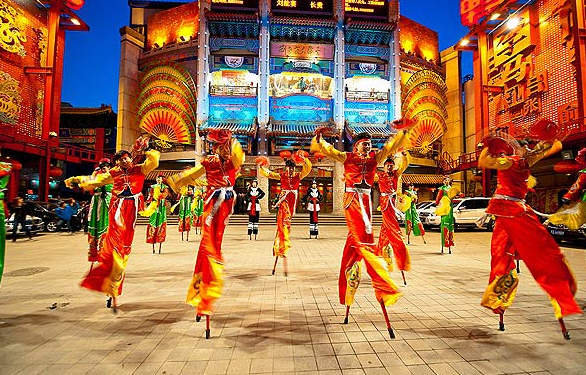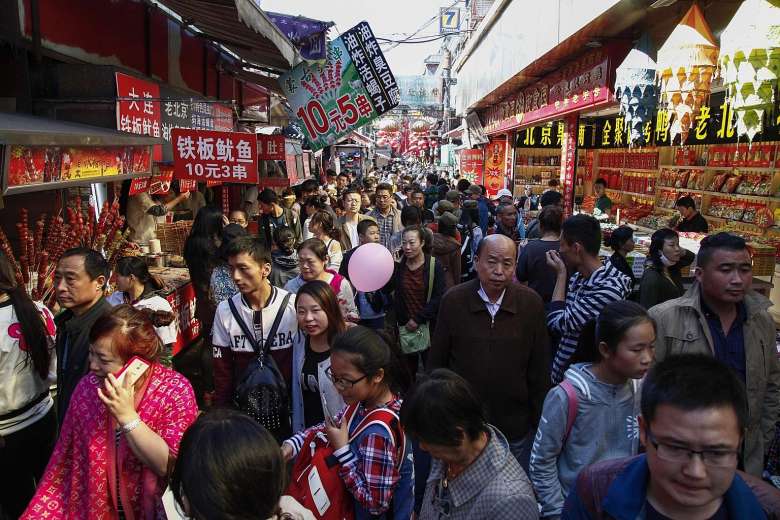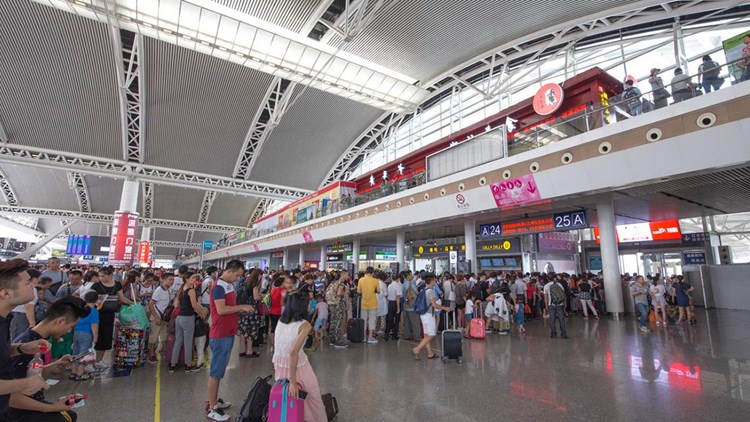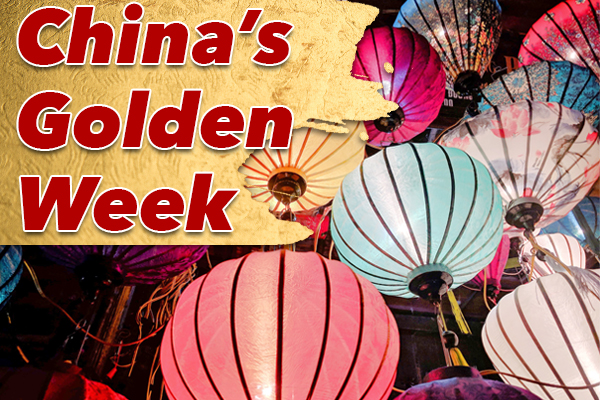What is China’s Golden Week
Many countries have a day or days set aside every year to celebrate workers. In china three days of paid holiday are given, and the surrounding weekends are re-arranged so that workers in Chinese companies always have seven continuous days of holiday. These national holidays were first started by the government for the PRC’s National Day in 1999 and are primarily intended to help expand the domestic tourism market and improve the national standard of living, as well as allowing people to make long-distance family visits. The Golden Weeks are consequently periods of greatly heightened travel activity. –Source wikipedia
 Golden Week is the 2nd largest holiday after the Chinese New Year, which is celebrated in either January or February which is set around Chinese New year. The date moves each year depending on the lunar cycle. National Day, which is part of Golden Week begins October 1st and ends on October 7th. During this time warehouse, office, and factory workers are given vacation at the same time so that the office and factory can close down completely. These weeks make headlines due to the large crowds of people that accompany them.
Golden Week is the 2nd largest holiday after the Chinese New Year, which is celebrated in either January or February which is set around Chinese New year. The date moves each year depending on the lunar cycle. National Day, which is part of Golden Week begins October 1st and ends on October 7th. During this time warehouse, office, and factory workers are given vacation at the same time so that the office and factory can close down completely. These weeks make headlines due to the large crowds of people that accompany them.

Source: www.tripsavvy.com
Last year, 6 million Chinese tourists traveled abroad hitting the rails, roads and airports during Golden Week and spent 13 billion US dollars. With this in mind, you’ll probably want to consider a few things if you’re considering taking a trip to China during this time. -Source tripsavvy.com
Shopping During Golden Week
There’s a saying around here: “Everything in China is negotiable.” Shopping, buying, and selling, they’re all games. The seller plays and the buyer plays. Most of the time it is an amiable game, though sometimes tempers flare. But have no fear, in the tourist-trade, everyone’s out to make a deal and you just have to learn the rules. -Source https://www.tripsavvy.com
Nothing opens the door for you like a Ni hao ma?, (How are you?) or a Duo shao qian?(How much?). Don’t worry, you will not be plunged headfirst into a Chinese conversation. Nothing is bought or sold without the ubiquitous large-format calculator coming out so that everyone can easily view just exactly what digits are being discussed.

Source: www.straitstimes.com/
Once you have found a suitable venue, such as an open air market, be sure to take a good look around before you get engaged in any negotiating. Doing this will enable you to get a clearer picture of how things work. Pay attention to prices, and do some mental price comparisons as you walk around.
Before you approach a vendor, it’s sensible to make sure that you are carrying some small denomination currency and you have a good idea of how much cash you have on you. If the vendor catches sight of a high denomination note, you can expect the price to rise accordingly.
Once you have had a look around and sorted out your money, you should try to mentally come up with a rough figure for how much you are prepared to spend. You may have to be a little bit flexible, but it’s best to go in with a clear idea in your head so you can be assertive and get the negotiating off to a strong start. -Source https://www.wikihow.com
Getting ready for the weekend

Source: www.travelchinaguide.com
Making weekend plans, arranging transportation, or making restaurant reservations?
It would be best to Book your flight/ train tickets and hotel rooms in advance. There may be more discounts for flights tickets if one books earlier. For trains in China, the tickets are available 60 days prior to departure. The thing is the train tickets may be booked up in a matter of minutes once available, so it is best to be prepared. Hotel rooms in hot travel destinations are also in demand. In case there is no place to stay; one should book them in advance as well. If one happens to book rooms upon arrival, try looking at some business hotels.
Now that you have read this blog be sure to check out some of our other blog posts, such as ‘Learn Mandarin Chinese: 5 Reasons Why’ and ‘5 Great Wall Hikes For Every Beijing Tourist’
ChinesePod
Latest posts by ChinesePod (see all)
- Tone Change Rules for Common Chinese Words - December 12, 2019
- ChinesePod’s Founding Story - October 10, 2019


